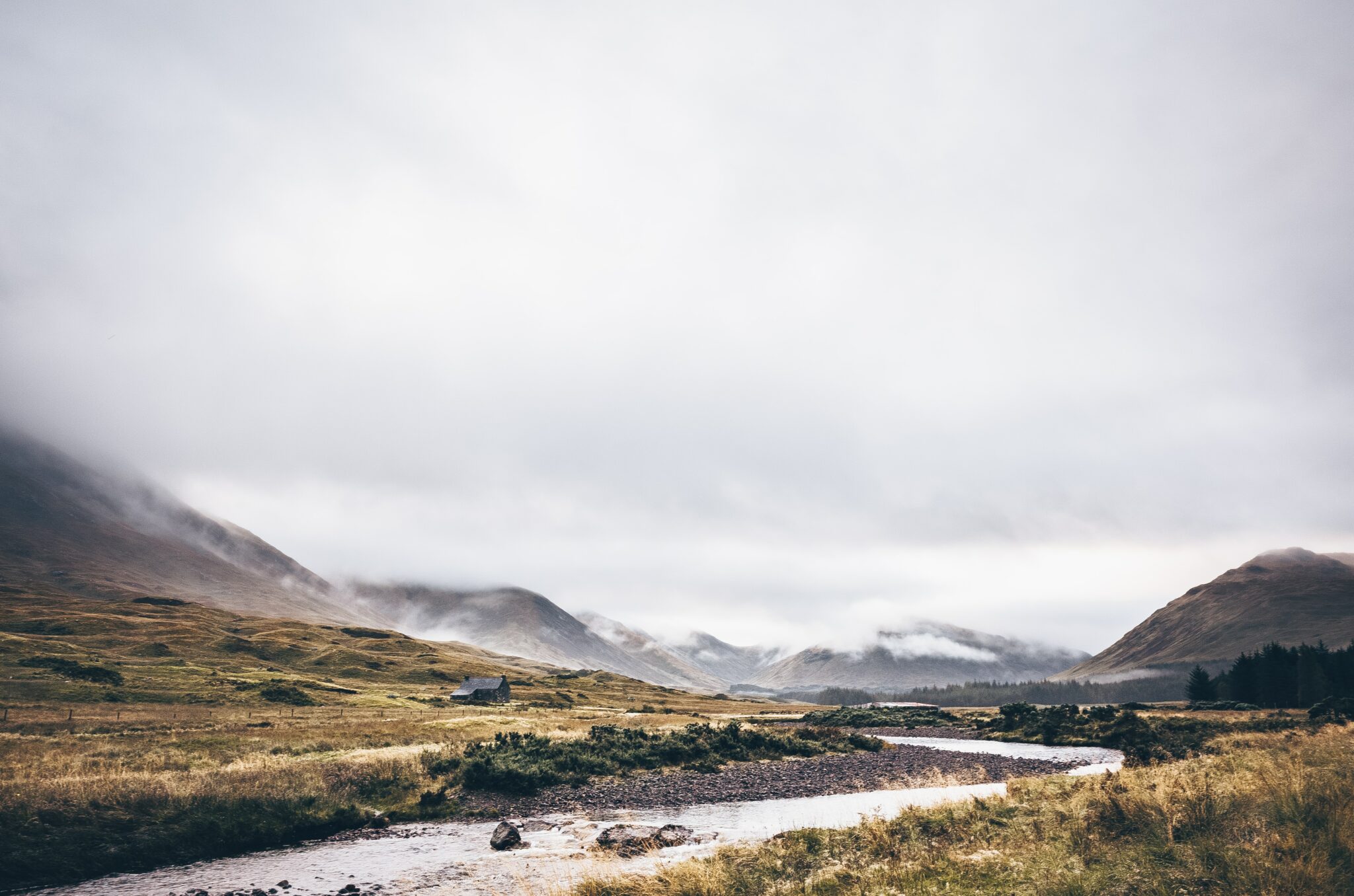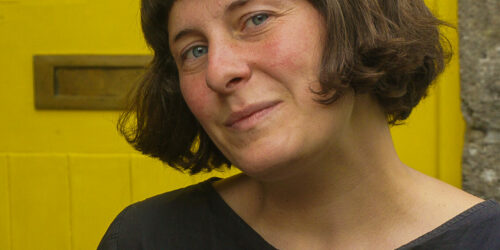
Abir Mukherjee, the bestselling author of the award-winning Wyndham & Banerjee series of crime novels, delivers a powerful essay on growing up in the UK as a child of Indian immigrants, Britain’s relationship to its colonial history, and what drives him to write. ‘A Change in the Air’ asks us to consider whose stories are told and whose are still forgotten, ignored or denied.
Read the commission below, and enjoy a conversation between Abir and writer Ayisha Malik (Sofia Khan, This Green and Pleasant Land) on The Writing Life podcast.
I can’t remember exactly when it was, though it was definitely at an early age; five or six maybe, certainly no later than seven, that I realised I didn’t fit in. At that age, it’s difficult to understand why. You just feel it. You realise that the things you experience aren’t quite the same as what those around you experience.
My parents came to the UK from India in the sixties. Economic migrants if you will, but that’s a rather loaded term. It seems to imply that the benefit was all in my parents’ favour. Seen from the Indian side, they were part of an educated brain drain, a diaspora of doctors and nurses who came to help staff our NHS; of engineers and professionals to help build and maintain our infrastructure; of teachers and carers and bus drivers and municipal workers, all of whom arrived, often in the face of racist hostility, to make new lives in our wet little islands.
I was born and raised in a country which didn’t view me as entirely legitimate. I grew up in a household with the mantra that in this land, with our skin colour, one had to be twice as qualified as a white person to get half as far. I grew up with my mother’s warning ringing in my ears: that we were here only at the forbearance of the majority, and that one day, despite whatever our British passports might say, we could be ordered to up and leave.
I was British, Scottish, but whatever I might wish to call myself, my Britishness or Scottishness was perceived as lesser. I remember a childhood friend offering me an eraser in the playground, so that I could rub out the brown and become white. And it was done with the best of intentions. He didn’t know why, and I didn’t know why, but we knew, that in the world we lived in, my skin colour marked me as not just different, but inferior.
I grew up in a household with the mantra that in this land, with our skin colour, one had to be twice as qualified as a white person to get half as far.
And I bought into that inferiority. How could I not? I was faced with it every day. In the images we saw on TV: the pictures of famine and poverty in black and brown lands; of heroic white saviours helping impoverished natives; of noble cowboys and dastardly Indians; of Michael Caine and a thin line of redcoats valiantly holding the line against hordes of Zulus; of Indiana Jones, rescuing little brown slave children from cruel and debauched maharajah under the spell of a bloodthirsty goddess. I learned it at school: in the history we were taught; in the literature we read; in the sectarian religious dogma we were told was the only path to the one true, rather austere, rather Scottish, God.
It took time, and the influence of my parents and other immigrants like them, to show me a different narrative; to show me that the history and the culture of my ancestors stretched back unbroken for almost five millennia, its prized relics now conveniently housed in the British museum. It took time for me to learn that the heroic cowboys and redcoats that I’d rooted for on the TV were the invaders; the usurpers; the conquerors indulging in the subjugation and the destruction of entire civilisations. It took time for me to understand that there was a different history to the one I was taught at school; a different literature, where people who looked like me were the heroes, not villains or hapless victims; and it took time for me to realise that God had not made himself in the image of a Scotsman, and that his son hadn’t been a blond haired, blue eyed, white man who just happened to enjoy living in the Middle East.
Most importantly I learned that what we are taught, or led to believe, is not always the truth. Or if it is, then it is only one side of the truth; a vista seen through one eye only, without depth or nuance.
And that’s a problem.
I believe that in this country, we are accustomed to thinking of ourselves as always being on the side of the angels. And we have fashioned and sanitised our history to reflect that. Few nations have been able to manage their history as effectively as we British have. We believe our national myths because we have never really had to face the reality which they conceal in a way that our neighbours, the French and the Germans had to, through military defeat. And so our myths live on, unchallenged by the darker truth.
I learned, from an early age, to question what I was told. You could say that my need to write stemmed from that urge to question the perceived wisdom. To tell the other side of the story. To open the other eye. To take the road less trodden.
You could say that my need to write stemmed from that urge to question the perceived wisdom. To tell the other side of the story. To open the other eye. To take the road less trodden.
I started writing at the age of thirty nine, but the seed was planted a quarter of a century earlier, and it finds its origins in anger. Anger, at receiving a ‘C’ for an essay in English class. The topic, I think, was along the lines of what we can learn from history, and I jumped at the chance to answer it. I would point out that history is written by winners and that you couldn’t learn from history if you whitewashed it. And to make my argument, I would point to the Bengal Famine of 1943.
In the middle of World War two, and despite bumper harvests, approximately three million subjects of the empire were allowed to starve to death in a man-made famine. The causes of that famine were manifold: a scorched earth policy carried out by the British to stop the Japanese who were then at the gates of India; a confiscation of all boats in the Ganges river delta, lest they fall into Japanese hands, thus crippling the network of food distribution throughout Bengal; and the hoarding of grain and rice for the military. As a result, people starved while food-stocks rotted in granaries. The famine was avoidable. Churchill was told in good time about the dangers, but he didn’t deem these Indian lives worth saving. The resulting death toll was on the scale of the Holocaust, and I believe it has its roots in the same rotten ethos: that some people are less human, less worthy of life, than others. The whole world is aware of the Holocaust. Indeed there are laws in many countries making it illegal to deny it took place, and yet, what of the three million Indians who were effectively sentenced to death at the same time? A resounding silence.
Now back in the eighties, we didn’t learn about British colonial history, not at my school at any rate. Indeed we learned more about German and Italian history of the twenties and thirties than we did about our own. The Bengal Famine was something that had been expunged from our history books. But I knew about it. I knew because my father had told me. You see, he’d lived through it. He remembered the emaciated peasants, staggering into the cities, looking for food. He remembered the skeletons dying in the streets.
Into this one essay, I would pour years of angst, about the constant contradictions of growing up as the child of immigrants in a society that was taught it was on the right side of everything. It would be therapy for me. I hoped to get an A. Getting the C minus felt like a mugging.
I learnt that day that challenging people’s accepted beliefs, telling people something they don’t want to hear – especially when it involves self-reflection, is bloody difficult; and in the intervening quarter of a century, not that much has changed. Technology – the internet and social media – have helped to give a voice to these alternate narratives, but people still tend to see this revisionism, this unorthodoxy, as an attack. They see it as a re-writing of the facts. Maybe that’s why the government is so scared of anyone questioning the accepted version our history. Why else introduce tougher sentences for the act of defacing a statue than for crimes like rape?
I can understand the fears but they’re misplaced. I’m not in favour of reinventing history, nor of replacing one version of the facts with another. But I believe we should open our eyes to another side of history that is already there. Why? Not to condemn or to damn, but to highlight the complexity of things. I believe that the vast majority of people in these islands are fair-minded, but our view of ourselves is framed by our national narrative, of the stories we tell ourselves about who we are. We start from the belief that we are on the side of morality and justice, whereas a dispassionate review of our unvarnished history would show that far too often, our forefathers have not been.
I believe that the vast majority of people in these islands are fair-minded, but our view of ourselves is framed by our national narrative, of the stories we tell ourselves about who we are.
The sanitising of our history makes hypocrites of us all. It’s by forgetting our history that we allow abuses to happen. The very tales my mother told me, of being a second class citizen in my own country; of being tolerated until we no longer are; over the years, I’d dismissed these as fears from another era: from the time of Enoch Powell, and rivers of blood, and the National Front. But as with so much, it seems she was right and I was wrong. How else can one explain the national disgrace that is the Windrush scandal? That people should come here, at the request of the British government, to help rebuild a war-shattered country, and then, fifty years later, be told they don’t belong here any more? How could it occur without a collective amnesia as to our own history?
Or the case of Shamima Begum? Regardless of her crimes, how else can a government strip a woman – a girl, really – born in this country, of her citizenship? They can do it because her parents came from somewhere else, because she’s seen as somehow less British than her peers. But here’s the thing. She is British. As British as you or me. We may find her actions and ideology offensive and intolerable, but that is our problem to deal with, and we must deal with it, because simply robbing her of her birth-right does nothing to stop the others like her who may be radicalised.
I write because of history, because of the urge to shout about our history. I write to highlight a forgotten history – a history hijacked and sanitised. I write to shine a light from a different angle – a marginalised, forgotten angle. I am writing a fiction, but within it is the kernel of a truth just as valid, possibly more so, than the truths in our history books.
And I see that as no flippant endeavour. I grew up in a world that felt off-kilter, where things were not quite right. Where you knew there was another side to the stories we accepted as factual history. It’s like living in a house where all the picture frames are off-centre on the wall and you’re the only one who notices.
But I’m not the only one who noticed. There were many other people who grew up feeling the same: that what we were taught wasn’t quite right. My writing is an attempt to “balance” the accepted narrative – to straighten those picture frames.
And so I’m glad for the winds of change. I’m glad that people are beginning to question the accepted narrative, whether it relates to a slave trader in Bristol, or the actions of a lionised wartime prime minister, or the legacy bequeathed to a university in Glasgow. I’m glad we are having the discussion, but I don’t wish to see statues toppled. I don’t want one version of history forcibly replaced by another. I’d rather the history be explained, both the good and the bad, and then a decision taken, preferably at a council meeting over tea and biscuits, as to whether a statue should be kept or uprooted. And if their fate is to be one of removal, I’d rather it be done in the dead of night, with the minimum of fuss, and that they be put in a warehouse, or better still, the British Museum once we’ve given other people their stuff back.
You might say I grew up in a microclimate. Somewhere up high on a cliff where the winds are often more turbulent than they are in the green pastures and sunlit uplands where most of the folk live. But it’s not so bad where I grew up. It’s a vantage point. It gives me, and those like me living on similar cliffs, a different perspective, I hope maybe a wider perspective, than those in the more temperate heartlands.
Because we don’t inhabit just one world or one culture, our histories are nuanced and fluid and three dimensional. Our stories are told in stereo. And the good news is, the weather’s changing.
The views expressed in this article are those of the writer.
Abir Mukherjee is the Times bestselling author of the Sam Wyndham series of crime novels set in Raj era India. His debut, A Rising Man, won the CWA Endeavour Dagger for best historical crime novel of 2017 and was shortlisted for the MWA Edgar for best novel. His second novel, A Necessary Evil, won the Wilbur Smith Award for Adventure Writing and was a Zoe Ball Book Club pick. His third novel, Smoke and Ashes, was chosen by the Sunday Times as one of the 100 Best Crime & Thriller Novels since 1945. Abir grew up in Scotland and now lives in London with his wife and two sons. Website
Ayisha Malik was born and raised South Londoner. A former publicist at Penguin Random House, turned managing editor at Cornerstones Literary Consultancy, turned full-time writer. Her debut novel, Sofia Khan is not Obliged, and its sequel, The Other Half of Happiness, (Zaffre), were dubbed as the ‘Muslim Bridget Jones.’ Her latest novel, This Green and Pleasant Land, (Zaffre) is out now. Ayisha has also contributed to the anthology, A Change is Gonna Come, (Stripes Publishing), and upcoming collection, A Match Made in Heaven, (Hope Road Publishing). She is also known for ghost-writing Great British Bake Off winner, Nadiya Hussain’s, adult books.

Weather With You is part of Open Doors: a series of commissions and open submissions programmed by the National Centre for Writing, with support from Arts Council England’s Ambition for Excellence programme.
You may also like...
The Heart of Glass
Award-winning writer, poet and podcaster Derek Owusu moves between waking and dreaming in this personal snapshot of a year spent in lockdown

25th May 2021
Weather With You
Heather Parry contextualises the work within our Weather With You series

24th May 2021
Agus Anois An Aimsir, And Now the Weather
Kerri ní Dochartaigh reflects on the experience of writing, dreaming and falling pregnant during a global pandemic

24th May 2021






